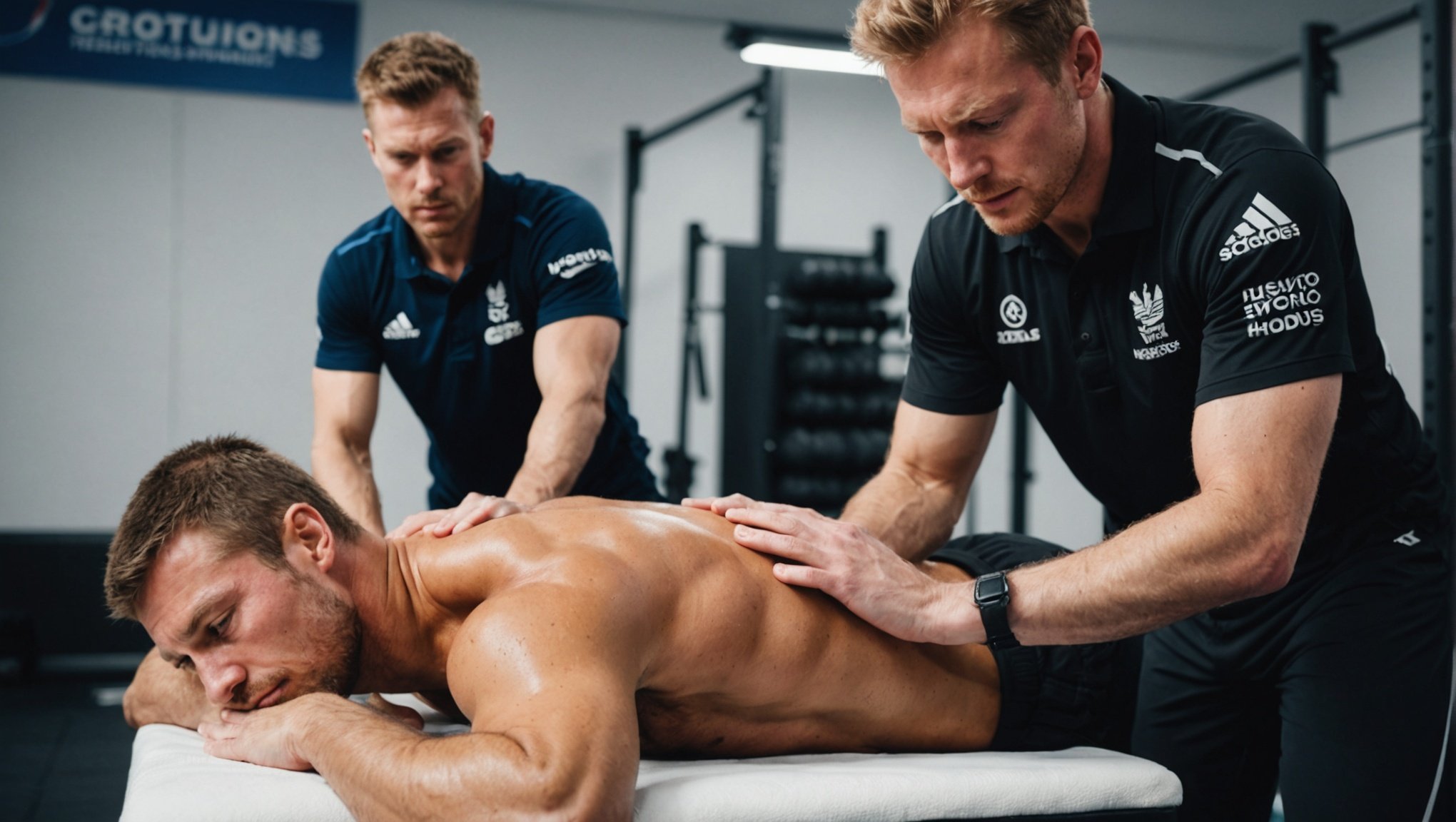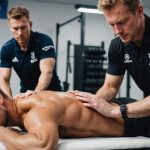Benefits of Massage Therapy for Recovery
Massage therapy provides numerous benefits specifically tailored for those in recovery, especially within combat sports. It is crucial for enhancing muscle recovery and reducing soreness, paving the way for athletes to maintain high performance levels. By engaging in regular massage sessions, individuals can experience a significant reduction in muscle discomfort and fatigue commonly associated with intense physical activity.
Moreover, this therapy plays an essential role in improving flexibility and range of motion. Athletes often face situations where movement is restricted due to muscle tension or injury. Massage therapy effectively alleviates such issues, ensuring that a full range of motion is maintained, thus preventing injury and facilitating overall better performance.
Have you seen this : Essential Measures UK Combat Sports Clubs Must Implement for Athlete Safety
In addition to physical advantages, massage therapy also reduces stress and promotes relaxation. Combat sport athletes often experience high levels of stress due to constant performance pressure. Incorporating massage therapy into their routine aids in reducing this stress, offering a calmer mindset and improved concentration.
By focusing on these aspects, massage therapy creates a harmonious balance between mind and body. This holistic approach allows athletes to not only reignite their physical capabilities but also reconnect mentally, fostering a healthier, more sustainable athletic career.
Also to discover : Unlocking Precision: The Impact of Biomechanical Analysis on Fencing Techniques for UK Athletes
Specific Techniques for Combat Sports Athletes
Combat sports athletes often face unique challenges when it comes to maintaining peak physical condition and preventing injuries. Understanding and utilizing the right massage techniques can significantly enhance performance and aid in recovery.
Deep Tissue Massage
Deep tissue massage is an intense massage technique designed to reach the deeper layers of muscle and fascia. It is particularly beneficial for combat sports athletes who often experience tightness and tension due to rigorous training. Deep tissue massage targets specific muscle groups, such as shoulders, back, and legs, effectively relieving chronic pain and aiding in injury prevention. This technique enhances flexibility and reduces the likelihood of muscle injuries.
Trigger Point Therapy
Trigger point therapy focuses on releasing tight knots in the muscles, commonly referred to as “trigger points.” Combat sports can create these painful spots due to repetitive strain. This therapy helps athletes by pinpointing areas of tension, using direct pressure to release tightness. By mitigating trigger points, athletes can improve their range of motion and decrease pain, leading to more effective training and competition.
Myofascial Release
Myofascial release involves gentle, sustained pressure to eliminate pain and restore range of motion. This technique is essential for combat athletes whose fascia—connective tissue covering muscles— can often be restricted. By targeting these areas, myofascial release promotes better circulation and reduces stiffness. Regular sessions can be crucial for optimal recovery and maintaining muscle elasticity.
Personal Testimonials from UK Combat Sports Athletes
UK combat sports athletes frequently share personal testimonials about the profound impact of massage therapy on their performance and recovery. An array of anecdotal evidence highlights significant improvements, with some athletes noting they experience faster muscle recovery, increased flexibility, and enhanced agility due to regular massage sessions.
Improved Performance and Recovery
Many athletes credit massage therapy with not only hastening their recovery times but also prepping their bodies for intense physical demands. For instance, after particularly grueling matches, combat sports enthusiasts often find that a targeted massage session helps alleviate muscle soreness and reduce inflammation, allowing them to return to training more swiftly.
Emotional and Psychological Benefits
Beyond physical benefits, many athletes also report emotional and psychological gains from regular massage therapy. The mental relaxation provided can be indispensable, helping athletes maintain focus and calmness in high-pressure situations. This contributes to an all-around enhancement of their performance.
Endorsements
Several athletes have endorsed specific massage therapists or techniques, attributing improved performance to these expert services. Some emphasize the importance of finding a therapist familiar with sports-specific needs. These personalized treatments play a critical role in optimizing both their physical and mental readiness, making them invaluable assets in the world of competitive sports.
Research Studies Supporting Massage Therapy
Massage therapy has been explored through numerous scientific studies, revealing its effectiveness in various contexts. These research findings consistently highlight massage therapy as a valuable tool in promoting health and well-being.
Review of Key Studies
A significant body of research findings underscores the benefits of massage therapy. One pivotal study published in the International Journal of Preventive Medicine demonstrated that consistent massage therapy sessions significantly reduced muscle soreness and improved overall relaxation in participants. This study, along with others, underscores the potential of massage therapy in enhancing physical recovery and mental rejuvenation through scientifically validated methods.
Statistical Evidence on Recovery Rates
Scientific studies provide compelling statistical evidence supporting the efficacy of massage therapy. For instance, a meta-analysis of multiple sources reported an average improvement of 30% in recovery rates among athletes receiving regular massage therapy compared to those who do not. These research findings serve as a testament to the tangible benefits of massage therapy in accelerating the recovery processes, thus enhancing overall performance and well-being.
Expert Opinions from Sports Therapists
Leading sports therapists consistently affirm the scientific studies highlighting the efficacy of massage therapy. Experts in the field often integrate these research findings into practice, leveraging them to craft personalised recovery programmes. This integration not only helps to build credibility but also maximises the therapeutic benefits to athletes and individuals alike.
Practical Tips for Incorporating Massage Therapy
Understanding the practical applications of massage therapy can significantly enhance an athlete’s recovery strategies. To optimise recovery, it’s crucial to establish a routine that integrates massage therapy effectively. Generally, athletes can incorporate both pre-event and post-event massages, depending on personal goals and schedules.
Choosing a knowledgeable massage therapist who specialises in combat sports is just as essential. Look for professionals with experience in working with athletes, as they comprehend the specific pressure and techniques required for maximum benefit. A good therapist will tailor sessions to address individual needs, aiding in muscle relaxation and injury prevention.
It’s beneficial to combine massage therapy with other recovery methods. Hydration and proper nutrition can enhance the body’s ability to recover and perform. Consuming water and nutrient-rich foods helps to replenish the body and support the healing process. Additionally, incorporating techniques like stretching and adequate rest can ensure an all-rounded recovery regimen.
Frequent sessions are not necessary for everyone; it’s essential to find a balance that considers personal recovery needs and training intensity. Listen to your body and adjust the frequency of sessions based on how you feel and the demands of your sport. This adaptive approach supports sustained performance and overall wellness.













